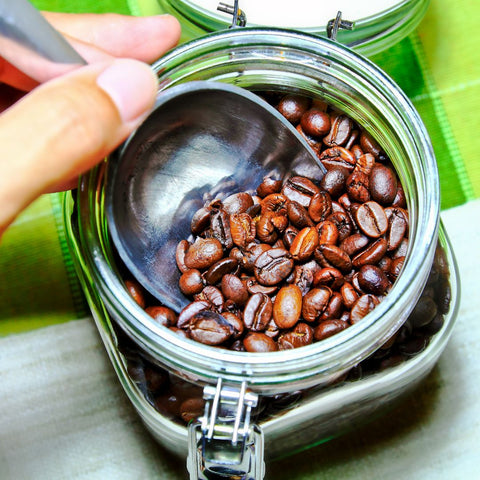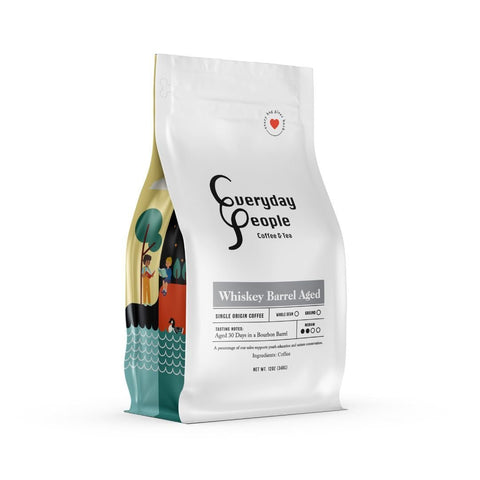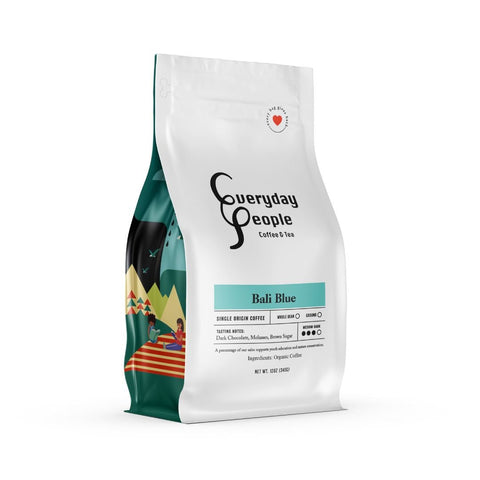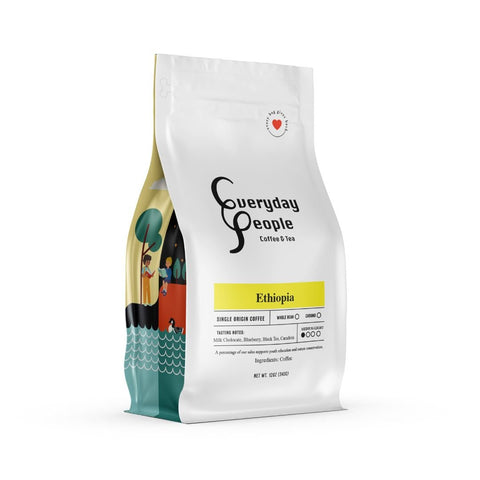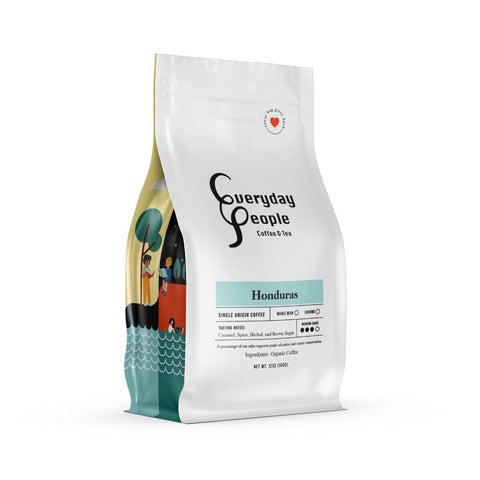If you've ever wondered "does coffee go bad" or "how long do coffee beans last," you're asking the right questions. Many coffee drinkers don't realize that improper storage can ruin even the most expensive beans within weeks. Understanding coffee shelf life and learning the best way to store coffee beans can save you money and guarantee every cup tastes amazing. This complete guide covers everything from how to tell if coffee has gone bad to the best coffee storage containers for maximum freshness.
Does Coffee Actually Go Bad? Understanding Coffee Shelf Life
The short answer is yes, coffee does go bad, but not in the dangerous way spoiled milk does. Coffee won't make you sick, but it will lose its flavor, aroma, and quality over time. Many people ask "does coffee expire" - while coffee has expiration dates, these are more about quality than safety. The main enemies of fresh coffee are oxygen, light, heat, and moisture, which break down the oils and compounds that create coffee's signature taste.
How to Tell if Coffee Beans Are Bad: Warning Signs
Knowing how to tell if coffee has gone bad can save you from a disappointing brew:
- Loss of aroma: Fresh coffee should have a rich, distinctive smell
- Flat or bitter taste: Old coffee often tastes dull or overly bitter
- Visible mold: This is rare but can happen if coffee gets wet
- Oily appearance: Beans may look excessively shiny or greasy
- Stale smell: Instead of that fresh coffee aroma, you'll notice a musty odor
How Long Does Coffee Last? Complete Coffee Shelf Life Chart
Understanding how long different types of coffee last helps you plan your purchases and avoid waste. Here's the definitive coffee shelf life guide:
How Long Do Coffee Beans Stay Fresh?
- Peak freshness: 2-4 weeks after roasting date
- Still good quality: Up to 6 months when stored in airtight containers
- Past expiration date: 2-3 years (safe but flavorless)
How Long Does Ground Coffee Last?
- Peak freshness: 1-2 weeks after grinding
- Still acceptable: 3-5 months in proper coffee storage containers
- Past expiration date: 1-2 years (safe but stale)
Does Instant Coffee Go Bad?
- Unopened instant coffee: 2-20 years (depending on packaging type)
- Opened instant coffee: 12-18 months
- Past expiration date: Indefinitely safe, but quality decreases significantly
Coffee Pods and K-Cups
- Best by date: 8-12 months
- Past expiration: 1-2 years (safe but less flavorful)
The Science Behind Coffee Freshness
Coffee beans contain oils and compounds that give coffee its flavor and aroma. When exposed to air, these compounds undergo oxidation, which breaks down the flavor molecules. This process is accelerated by heat, light, and moisture.
The moment coffee is roasted, it begins releasing carbon dioxide and other gases. This "degassing" process is why fresh coffee beans often come in bags with one-way valves. After about two weeks, most of the CO2 has escaped, and the oxidation process accelerates.
Best Way to Store Coffee Beans: Ultimate Storage Guide
Proper coffee storage can extend your beans' freshness by months. Here are the proven best practices for how to store coffee beans and ground coffee.
Coffee Storage Tips That Actually Work
Use Airtight Coffee Storage Containers The best coffee storage containers have tight-fitting lids that create an airtight seal. This minimizes oxygen exposure, which is the primary cause of coffee staleness. Look for containers specifically designed for coffee storage with CO2 release valves.
Store Coffee in Cool, Dark Places Heat and light are coffee's enemies. The ideal coffee storage location is a cool, dark pantry or cupboard away from heat sources like stoves, ovens, or sunny windows. Temperature fluctuations accelerate the staling process.
Never Store Coffee in the Refrigerator This is one of the biggest coffee storage mistakes. Refrigerators create moisture and odor absorption problems. The condensation that forms when you remove cold coffee from the fridge can ruin your beans.
Buy Whole Bean Coffee When Possible Whole beans maintain freshness much longer than pre-ground coffee. The best way to store ground coffee is not to store it at all - grind only what you need for each brewing session.
Best Coffee Storage Containers for Maximum Freshness
Airtight Glass Coffee Canisters: Mason jars or specialized glass coffee containers with rubber seals offer excellent visibility and airtight storage. Perfect for countertop storage in dark kitchens.
Ceramic Coffee Storage Containers: These provide superior protection from light while maintaining consistent internal temperatures. Many include airtight rubber gaskets for optimal freshness.
Stainless Steel Coffee Storage: Durable, lightproof, and often include CO2 release valves. The vacuum-sealed options are among the best coffee storage containers available.
Original Coffee Packaging: If your coffee comes in bags with resealable zippers and one-way degassing valves, this can work for short-term storage (under 2 weeks).
Common Coffee Storage Mistakes That Ruin Your Beans
Avoiding these coffee storage mistakes can dramatically extend your coffee's shelf life and improve taste quality.
Should You Freeze Coffee Beans? The Truth About Freezer Storage
While freezing can extend coffee shelf life, it's not ideal for daily use coffee. Frequent temperature changes create condensation, which damages beans. Only freeze coffee for long-term storage (3+ months) in airtight, freezer-safe containers, and never refreeze thawed coffee.
Why Clear Storage Containers Harm Coffee
Light breaks down coffee's flavor compounds through photodegradation. Always choose opaque coffee storage containers or store clear containers in completely dark locations like pantries or cabinets.
Mistake 3: Buying Too Much at Once
Unless you drink several cups daily, buying coffee in bulk often leads to stale coffee. Purchase smaller quantities more frequently for better freshness.
Mistake 4: Grinding Too Early
Pre-grinding coffee significantly reduces its lifespan. Ground coffee has more surface area exposed to air, accelerating the staling process.
How to Keep Coffee Fresh: Advanced Storage Strategies
How Long Do Coffee Beans Last in Different Storage Methods?
Room Temperature in Original Packaging: 1-2 weeks for optimal flavor Airtight Container at Room Temperature: 4-6 weeks for whole beans Vacuum Sealed Containers: 2-3 months for whole beans Freezer Storage (Long-term): 6-12 months (for unopened, vacuum-sealed portions)
Storage Tips for Specialty Coffee Types
How to Store Single-Origin and Specialty Coffee Premium single-origin coffees deserve extra care since you're paying for specific flavor notes. Use them within 2-3 weeks of the roasting date and store in small, airtight containers to minimize air exposure each time you open them.
Best Way to Store Flavored Coffee Beans Flavored coffees contain added oils that can go rancid faster than regular coffee. Use within 3-4 weeks of opening and store separately from other coffees to prevent flavor cross-contamination.
How Long Does Decaf Coffee Last? Decaffeinated coffee follows the same storage rules as regular coffee, but the decaffeination process can make it slightly more susceptible to staleness. Use the same storage timeline but check freshness more frequently.
How to Tell if Coffee Is Still Good: Freshness Testing Methods
Before brewing questionable coffee, use these proven methods to test coffee freshness:
- Smell test: Fresh coffee should have a strong, pleasant aroma
- Visual inspection: Look for excessive oil or any signs of mold
- Bloom test: When brewing, fresh coffee will "bloom" or foam up when hot water hits it
- Taste test: Brew a small amount and taste for staleness or off-flavors
When to Throw Coffee Away
You should discard coffee if you notice:
- Any visible mold growth
- A rancid or sour smell
- Extremely bitter taste that can't be improved by adjusting brewing methods
- Signs of pest infestation
Making the Most of Older Coffee
If your coffee is past its prime but not bad, here are ways to use it:
- Cold brew: The cold brewing process can mask some staleness
- Coffee ice cream: Use it in desserts where other flavors complement it
- Cooking: Add to spice rubs or marinades for meat
- Gardening: Used grounds make excellent compost
Final Thoughts
Coffee doesn't spoil like perishable foods, but it does lose quality over time. By understanding proper coffee storage techniques and recognizing signs of staleness, you can ensure every cup you brew is as delicious as possible. Remember that freshness is the key to great coffee, so buy in smaller quantities, store in the best coffee storage containers you can afford, and grind just before brewing.
The investment in quality airtight coffee storage containers and developing good coffee storage habits will pay off in better-tasting coffee and less waste. Whether you're a casual coffee drinker or a dedicated enthusiast, following these coffee storage tips will help you get the most out of every bean and extend your coffee's shelf life significantly.
Key Takeaways for Coffee Storage:
- Coffee beans stay fresh 2-4 weeks; ground coffee only 1-2 weeks
- Airtight containers in cool, dark places are essential
- Never store coffee in the refrigerator
- Whole beans last longer than ground coffee
- Check roast dates when buying and use coffee storage containers with CO2 valves
- Freeze only for long-term storage, never for daily use coffee
For the best coffee experience, always check roast dates when purchasing, invest in quality storage containers, and remember that whole beans stay fresh longer than ground coffee. Happy brewing!

